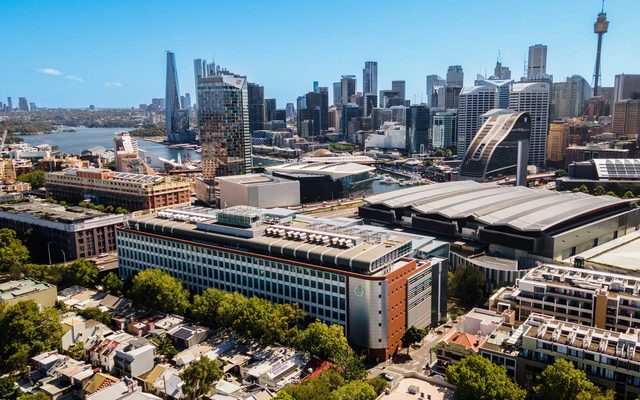This article is from the Australian Property Journal archive
ALIBABA Cloud, the digital infrastructure arm of Chinese e-commerce giant Alibaba, will close its data centres in Sydney later this year, in anticipation of potential changes by the Australian government over data sovereignty.
Alibaba Cloud, also known as Aliyun, will close two data centres in Sydney on September 30.
The centres were opened in 2016 and the company has recommended customers migrate their data to Alibaba Cloud in Singapore or other regions in Asia.
The decision also impacts its data centres in Mumbai India.
“As part of Alibaba Cloud’s infrastructure strategy update, following careful assessment, we have decided to cease operations at our data centers in Australia and India while enhancing our investment in the Southeast Asia and Mexico.
“We recommend you to migrate your business to Alibaba Cloud region in Singapore or other regions at your earliest opportunity,” Alibaba said in a statement.
The company did not disclose the reason behind its decision although industry sources suggest it is due to data localisation changes being considered by the Australian government over data sovereignty and protecting the privacy of Australian citizens.
RIMPA, the leading organisation representing Records and Information Management Practitioners, has written to the Department of Home Affairs recommending the Australian adopt data localisation like many European and Asian countries.
In Asia, the likes of India, Indonesia, Malaysia, Thailand, Vietnam and the Philippines are already moving ahead of Australia in adopting data localisation regulations.
RIMPA said in its submission to Home Affairs that, “Australia needs to give its’ citizens confidence that trade and other economic transactions do not compromise or put at risk their personal information or national security,”
Although data localisation regulations are expected to disrupt operators in the short term, they are expected to be a boon for the data centre sector in the long run as governments will require companies to hold data locally.
If the Australian government introduces data localisation regulation, it is expected to lead to increase demand for data centres in Australia.
According to a new Savills report, generative AI and the technology behind applications such as ChatGPT, 5G networks and the Internet of Things are driving demand as are regulatory pressures with many jurisdictions requiring tech companies to store their citizens’ data locally, rather than servers offshore.
Structure Research estimates the region’s colocation data centre market size was around 10,233MW of critical IT capacity in 2023.
That is now projected to grow at a five-year compound annual growth rate (CAGR) of 13.3%, nearly doubling to 19,069MW by 2028.
According to CBRE’s annual Global Data Centre Investor Survey, 97% of respondents are planning to increase their investment into data centres in 2024, with 92% allocating more than $100 million into data centres and 44% planning to allocate more than US$500 million into the sector.
Last year, just 32% of respondents said they would allocate this sum, reflecting the surging interest in data centres as the gap between demand and capacity broadens.
In Australia that will require more investments as CBRE’s Q1 Asia Pacific Data Centre Trends report found new Australian data centre supply is now fully contracted, due largely to rapid cloud adoption and AI demand.
Despite this, 2023 saw major players such as Airtrunk, NextDC and Colt expand their footprints over the year. While in April, NextDC launched a $1.32 billion raising to develop and boost facilities in Sydney and Melbourne.
While outbound Australian capital saw AustralianSuper invest $1.6 billion in Vantage Data Centers in Europe, the Middle East and Africa.
Recently, Macquarie Data Centres inked a $174 million deal to acquire land and buildings from Keppel DC REIT, as part of the groups expansion plans that are strategically prioritising growth in Sydney’s North Zone.
Notably, in Japan CyrusOne and Kepco launched a $7 billion 900-MW joint venture in 2023, backing the regions data centre growth.
Currently Tokyo, Singapore, Seoul and Sydney are driving investor demand in the Asia Pacific region. With 15% of respondents interested in investing in Sydney and 8% in Melbourne.
Recently Bloomberg found finding data centres over 2023 consumed more energy that some small nations like Italy and Taiwan, with consumption only set to skyrocket.




